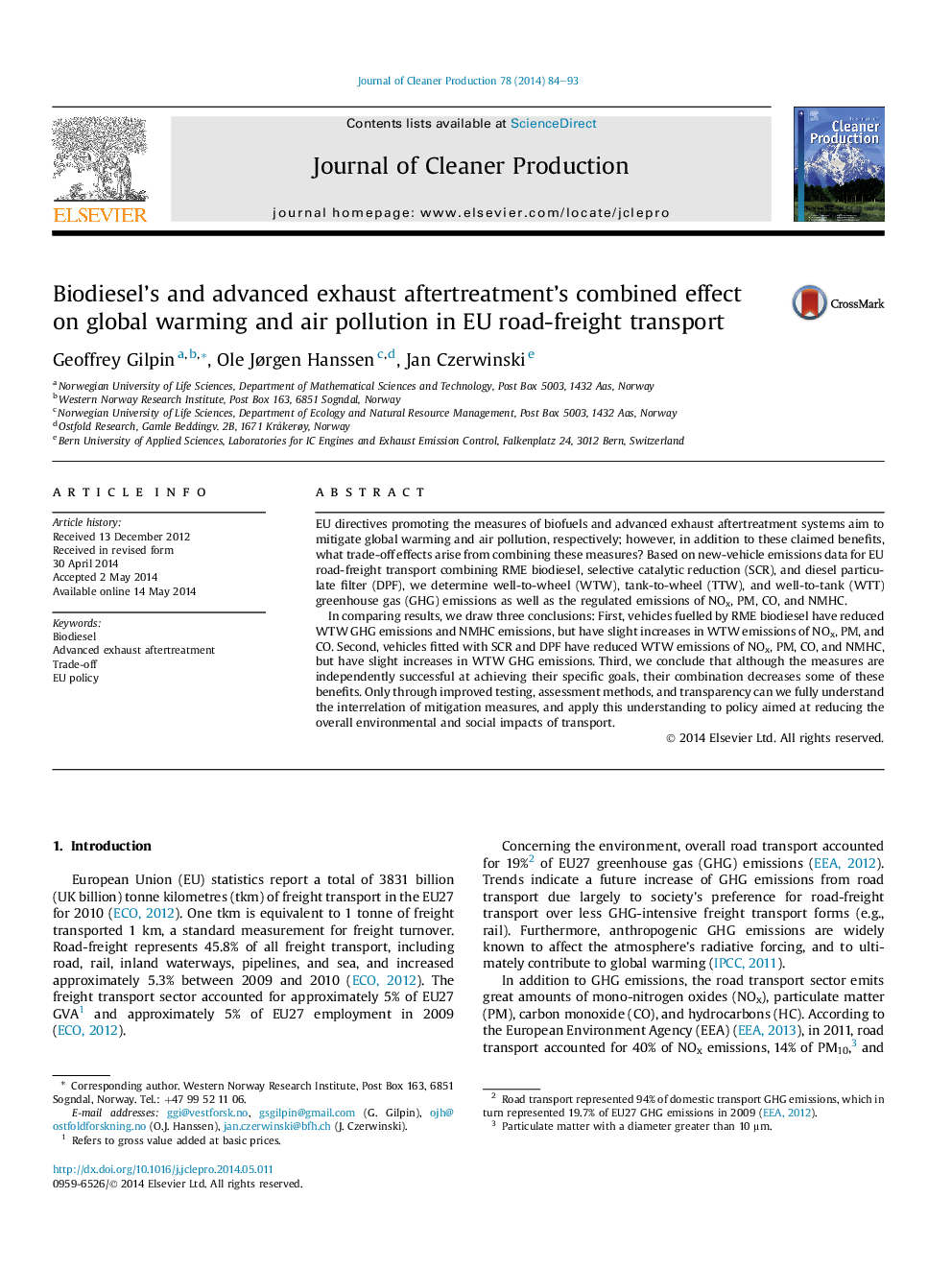| Article ID | Journal | Published Year | Pages | File Type |
|---|---|---|---|---|
| 1744875 | Journal of Cleaner Production | 2014 | 10 Pages |
EU directives promoting the measures of biofuels and advanced exhaust aftertreatment systems aim to mitigate global warming and air pollution, respectively; however, in addition to these claimed benefits, what trade-off effects arise from combining these measures? Based on new-vehicle emissions data for EU road-freight transport combining RME biodiesel, selective catalytic reduction (SCR), and diesel particulate filter (DPF), we determine well-to-wheel (WTW), tank-to-wheel (TTW), and well-to-tank (WTT) greenhouse gas (GHG) emissions as well as the regulated emissions of NOx, PM, CO, and NMHC.In comparing results, we draw three conclusions: First, vehicles fuelled by RME biodiesel have reduced WTW GHG emissions and NMHC emissions, but have slight increases in WTW emissions of NOx, PM, and CO. Second, vehicles fitted with SCR and DPF have reduced WTW emissions of NOx, PM, CO, and NMHC, but have slight increases in WTW GHG emissions. Third, we conclude that although the measures are independently successful at achieving their specific goals, their combination decreases some of these benefits. Only through improved testing, assessment methods, and transparency can we fully understand the interrelation of mitigation measures, and apply this understanding to policy aimed at reducing the overall environmental and social impacts of transport.
